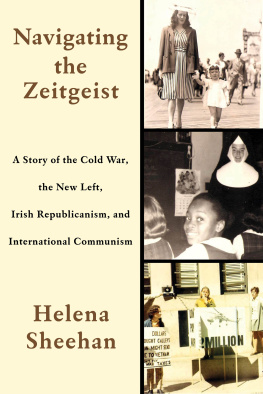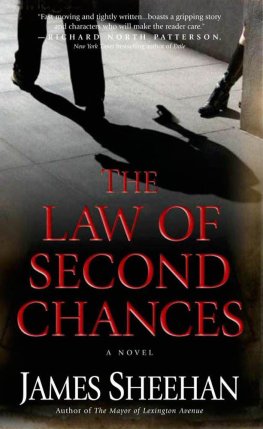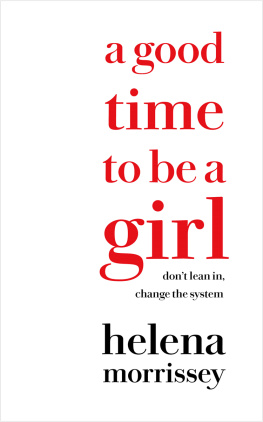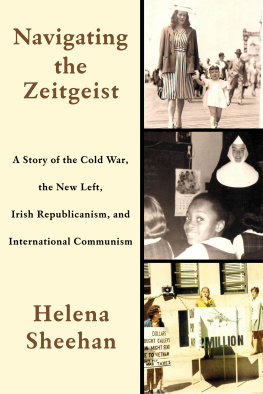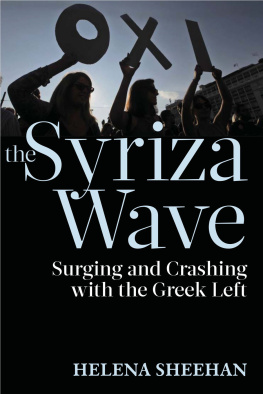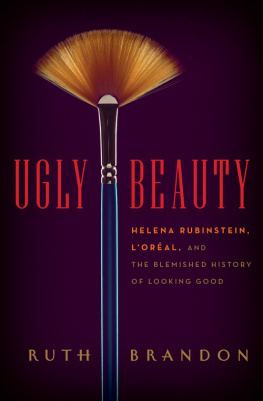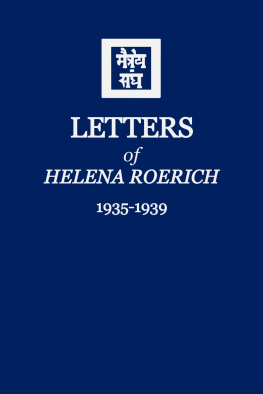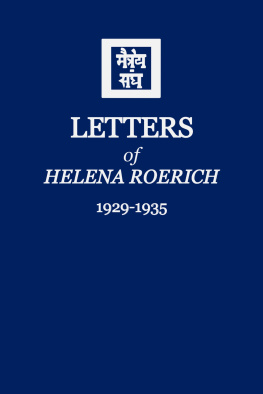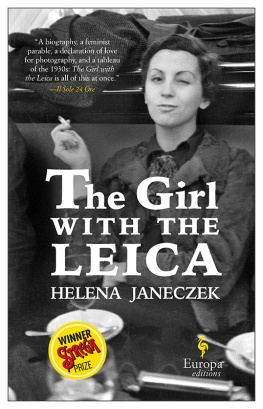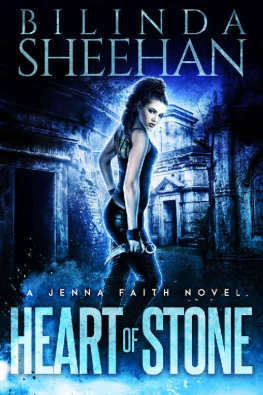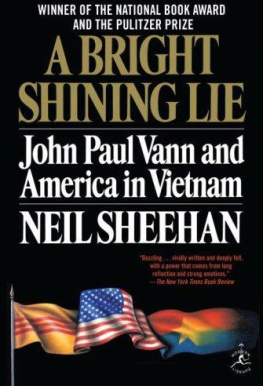
NAVIGATING THE ZEITGEIST
NAVIGATING the ZEITGEIST
A Story of the Cold War, the New Left, Irish Republicanism, and International Communism
by HELENA SHEEHAN

MONTHLY REVIEW PRESS
New York
Copyright 2019 by Helena Sheehan
All Rights Reserved
Library of Congress Cataloging-in-Publication Data
available from the publisher
ISBN (pbk): 978-1-58367-727-8
ISBN (cloth): 978-1-58367-728-5
Typeset in Minion Pro
MONTHLY REVIEW PRESS, NEW YORK
monthlyreview.org
5 4 3 2 1
Contents
DEDICATION
To all who walked along the way with me and did their best to come to terms with the times
ACKNOWLEDGMENTS
I thank all those who contributed to the life I have led and encouraged me to write my way through it. I thank Monthly Review Press for thinking this book was worth publishing and working with me in a collegial and comradely way to bring it to fruition. I thank Sam Nolan for enduring everyday life with me and my obsessive ways.
Introduction
Sometimes I feel as if I have lived through eons in a matter of decades. The waves of historical change, such as swept over centuries in the past, seem to have swept through my world several times over already. And who knows what I have yet to see? I am perhaps only halfway through the time I may expect my life to be.
I wrote these words in 1988, when I was forty-four. The waves kept coming, and no less convulsively or consequentially. I set out here to write the story of these decades as they flowed through me, as I navigated the tides of history, whether on sunny days or in raging storms. I am striving for something more than memoirfor a work of intellectual, social, and political history within the narrative frame of autobiography. I recognize the hazards of first-person writing. I have read many memoirs and autobiographies and found many lacking in critical self-reflection, proportion, sociohistorical consciousness. Few represent the relation between self and world satisfactorily. I believe that a person is neither a mere stimulus-response mechanism nor a mystical inner essence. I see a person as inherently relational, a nodal point in a field of forces, forged in a dialectic between self and world.
My story is also the story of others, not only those I knew directly, but also those whose stories came flowing into mine. Consciously or not, a person is formed within a torrent of processes and events. I decided from a young age to do so consciously, to bring the widest range of forces to the sharpest focus I could. I set out to navigate the zeitgeist, whether to go with the prevailing winds or to set a course against them. In writing my way through this, I have sought a form of writing that is experiential without being egotistical, expressing the epochal in the immediate, bringing into focus the characteristic conflicts and choices of the age amid concrete circumstances.
I have tried to tell my own story in a way that opens to the stories of others, especially those who have walked the same terrain as I have: that of the Cold War, of Catholicism, of academe, of the New Left, of the communist movement, of the new world order. I do so assuming that it is not only those who lived through these times who may be interested in reliving and reflecting on them, but that those who did not might want to know of times and places they escaped by being born later or by making other choices. I do so as coherently as I can. I do not regard myself as a de-centered postmodern subject. I have struggled to integrate the flow of experience, despite the fragmenting forces of my time and the positivist acquiescence in them and the postmodernist glorification of them. I have always actively assumed that experience could be unified both as biography and as history.
This is therefore not only a narrative, but a defense of grand narrative. I am seeking to tell the story of my times in world-historical terms. It is, of course, only a story, which might contribute to the story, which will be forever in the making, open to addition, correction, reconstitution. It is inevitably and unapologetically perspectival. It is both limited and enhanced by such experiences as were open to me. It is partial and uneven, varying in focal length, depending not only on my experiences, but on my memories, sources and emphases. I have relied on recollection augmented by research, both in public records and my own papers. I kept sporadic diaries, wrote and received many letters, took notes at many conferences, documented the flow of ideas and events more thoroughly than most, but not as thoroughly as I wished when I came to write this. My stress on certain events was determined not only by availability of sources, but by my assessments of significance.
I am bearing witness to lost worlds here. It is no longer possible to step into a pre-Vatican II convent or to travel to the USSR. These were strong and seemingly stable worlds that vanished stunningly and suddenly. They seemed destined to last forever until they were gone. I want to testify to the power of their existence and absence.
The story begins in the United States, capturing, I hope, both the cohesion and contradictions of Cold War America and pre-Vatican II Catholicism. It portrays the last days of the old order, first in the wider society and then within the walls of a convent. It explores the relativizing effect of Vatican II and the Kennedy years. It conveys the social turmoil of the 1960s in universities, in homes, and in the streets. All this ferment came at the time of my life where it was natural to question my received worldview and to lay the foundations for my mature outlook.
The stable world of my youth was shattered. Once the web unraveled, every thread had to be taken up again and either discarded or rewoven. My whole worldview came into crisis. Of course, not everyone lived through these tempestuous tides in the same way. Indeed, many of my contemporaries pursued their daily rounds and private pleasures, living lives remarkably like those of their parentsselling insurance, pushing prams, mowing lawns, watching soap operas, and securing pensions, untouched by epochal engagement. They felt no need to hurl themselves at history in the making, no obsession with being at the cutting edge of their era. Others of my contemporaries, however, had other priorities. With them, I felt the pulsations of powerful forces converging.
Later the story comes to Ireland, with forays into the rest of Europe, East and West, dealing with experiences of republican, social-democratic and communist parties and social movements, and exploring the patterns of social change in Irish society from the perspective of a political activist. In Europe, especially in my times in the East, I witnessed the dying days of the socialist experiments that had shaped the twentieth century. I felt the ground shifting under my feet again. As the world turned upside down, I traced the ideas, debates, events, and life stories that played out as it transpired.
I earned my living doing various jobs, but primarily as an academic, eventually a professor. Across decades and continents, I have tracked many transformations, for better and worse, in the modus operandi of universities. Here again I looked for the patterns and underlying forces shaping these developments, even while participating in them and sometimes resisting them.
In writing my way through this, I relived and reassessed my life, my times, my relationships. I think that we resynthesize our life experience all the time, sometimes in small and nearly imperceptible ways, but other times more overtly and dramatically, as new experiences bring old ones up for consideration again. I have been conscious of a dynamic between me then as a character in my story and me now as its author. I have tried to be scrupulously honest about this and not attribute my mature views to my younger self, while still bringing to bear my mature perspective in interpreting events in a way that I might not have done then. The writing of any story is itself a story. I remembered things I had forgotten. I discovered things about the past that I did not know at the time.
Next page
